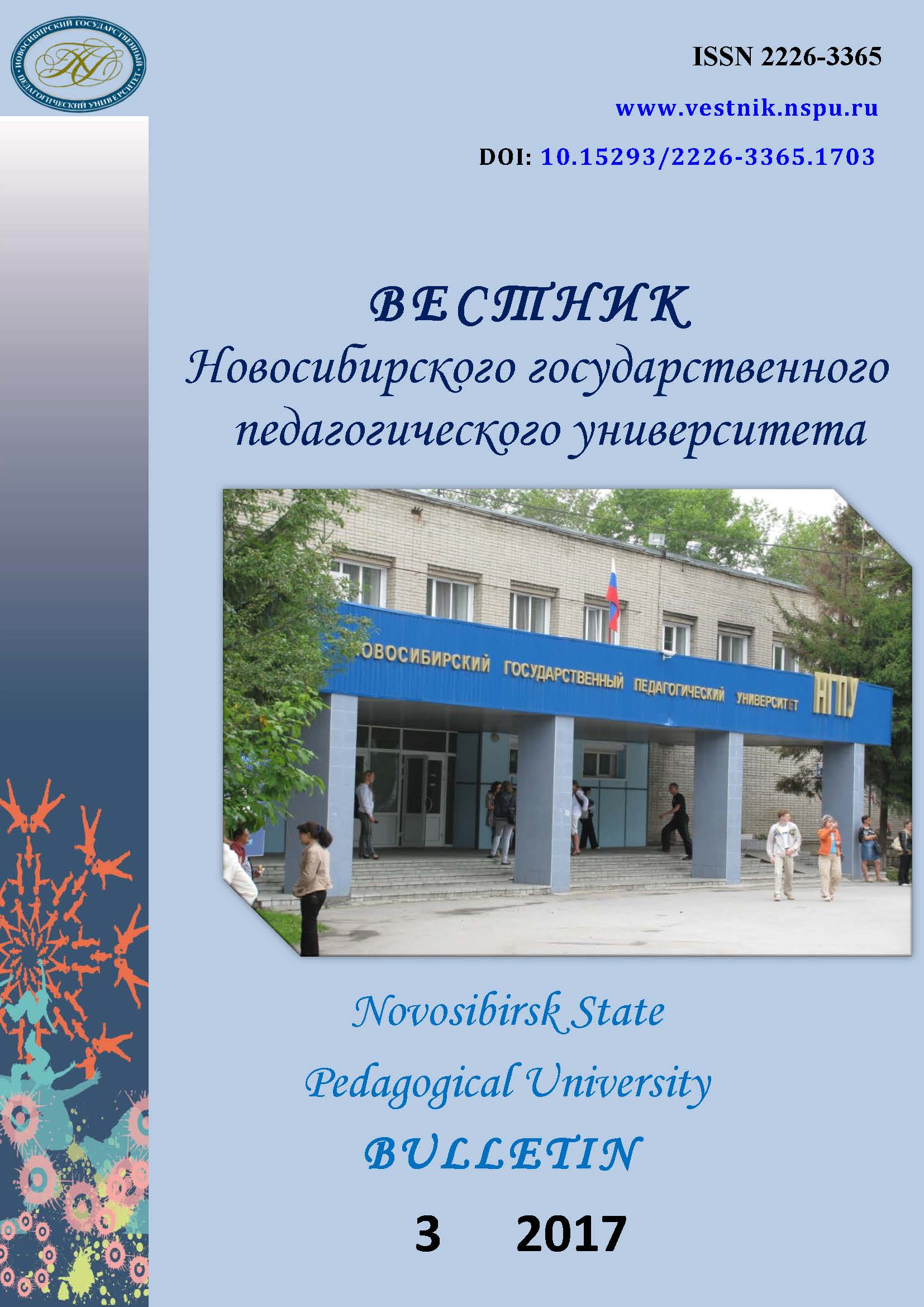Особенности темперамента и волевой саморегуляции у студентов спортивного и гуманитарного профилей обучения
Peculiarities of temperament and voluntary self-regulation
in sports and humanities students
Author(s): Nadezhda Aleksandrovna Lisova, Sergey Nikolaevich ShilovSubject(s): Vocational Education, Higher Education , Personality Psychology, Sociology of Education
Published by: Новосибирский государственный педагогический университет
Keywords: Temperament; Self-regulation; Personal characteristics; Students; Field of study; Differ-entiated approach; Biofeedback
Summary/Abstract: Introduction. Currently, one the most significant problem is the introduction of a differen-tiated approach in the educational practice, including higher education institutions. However, its implementation requires an indepth investigation of individual-typological and behavioral characteristics of students of particular fields of study. The purpose of the article is to identify specific characteristics of temperament and voluntary self-regulation of students de-pending on their fields of study.Materials and Methods. The methodology of research is based on approaches of V. I. Mo-rosanova, A. K. Osnitskiy, G. S. Prygin to the concept of voluntary activity self-regulation. The study uses A.V. Zverkov, E. V. Eydman’s test "Study of voluntary self-regulation", G. S. Prygun’s test "Detection of style of self-regulation activities", and the method of game biofeedback by heart rate in order to identify the levels of behavior self-regulation.Results. The results of the investigation showed differences in the temperament structure and levels of voluntary self-regulation in students of different fields of study. The authors dis-covered significant differences in the characteristics of temperament which determine the gen-eral activity, flexibility and focus of behavior as well as mood and sensitivity to external influ-ences in students demonstrating different levels of self-regulation skills. It is noted that Humani-ties students demonstrated a lower level of almost all the analyzed parameters of activity self-regulation, high levels of self-regulation was most prevalent among the Sports students. The authors attribute this to greater intensity of behavioral manifestations and sensitivity in students of Humanities education. Comparison of data and correlation analysis showed that the levels of voluntary self-regulation and autonomy-dependency correlate with such traits of temperament as flexibility, distractibility, persistence, sensitivity for each field of study. Conclusions. The authors conclude, that activity self-regulation of undergraduate students has its own characteristics in different fields of study and relates to specific temperament structure. The results allow more efficient implementation of student-centered approach to education according to the specifics of students’ academic-professional orientation.
Journal: Вестник Новосибирского государственного педагогического университета
- Issue Year: 7/2017
- Issue No: 3
- Page Range: 72-88
- Page Count: 17
- Language: Russian

